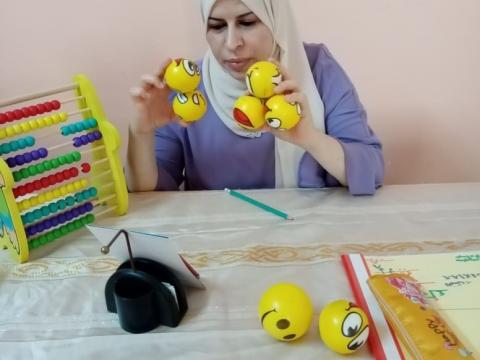Photo story: Remote Remedial Education to Jordanian and Syrian Refugee Children

Since 2014, World Vision has been implementing remedial education projects in double-shift schools in Irbid governorate, northern Jordan. The projects, funded by Japan Platform, World Vision Japan and World Vision New Zealand, aim to improve the basic learning skills of 7 to 13-year-old Syrian and Jordanian children struggling with low academic performance. Through these projects, World Vision also intends to create and ensure a sustainable and safe learning environment for all children. During the 6 years of the project implementation, more than 3,976 children benefitted from the programmes’ activities - 144 children per school in each academic year. The projects provide remedial classes in Arabic, English and Maths, as well as supplementary activities for enhancing children's well-being and resilience, such as recreational activities (drawing, crafting, games and sports). In addition, the remedial education programme provides classroom activities such as "Leader of the Day". This activity aims to develop children’s leadership and teamwork skills by applying the educational model implemented in Japanese schools.
According to the impact evaluation conducted in 2019, around 90% of the children, who participated in World Vision's remedial classes, improved their academic performance. Staff also reported they have become more motivated to learn than before they joined the classes.
After the COVID-19 outbreak that surfaced in Jordan in mid-March 2020, Jordanian public schools had been closed from 15 March 2020 until end of August. The decision to open schools is yet still dependent on the number of positive cases in the country. To minimize the learning gap between advanced and struggling students from expanding, World Vision has started the remote remedial education programme in Jordan on 19 April 2020. The remote remedial lessons are currently provided through WhatsApp and ZOOM applications, and are tailored to the level of students’ understanding through the utilisation of visual aids.
Children told me they were relieved to see me on camera and their parents were very happy with the results
In this photo story, Safaa’ Tanashat, a Maths teacher at World Vision’s remedial education programme in Jordan demonstrates different tools that she uses to explain the lessons remotely for the students. “Remote learning has been a challenge because I had to think of ways to attract the children’s attention. Children told me they were relieved to see me on camera and their parents were very happy with the results,” said Tanashat.


The teacher is using variable teaching and learning materials to attract the students’ attention.



